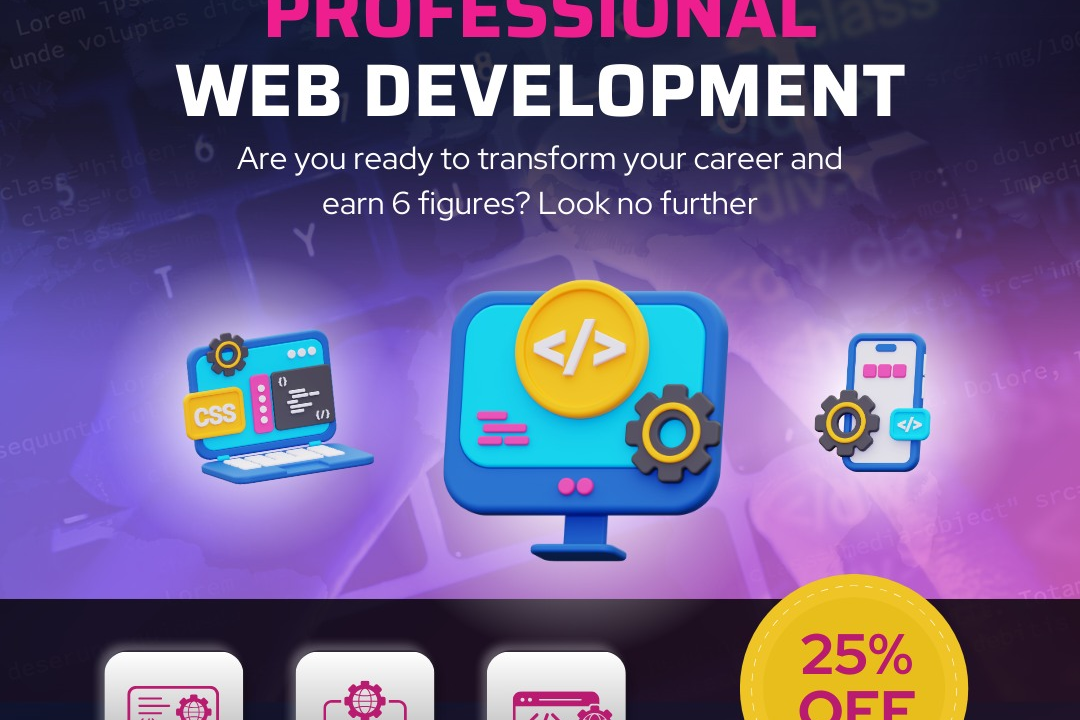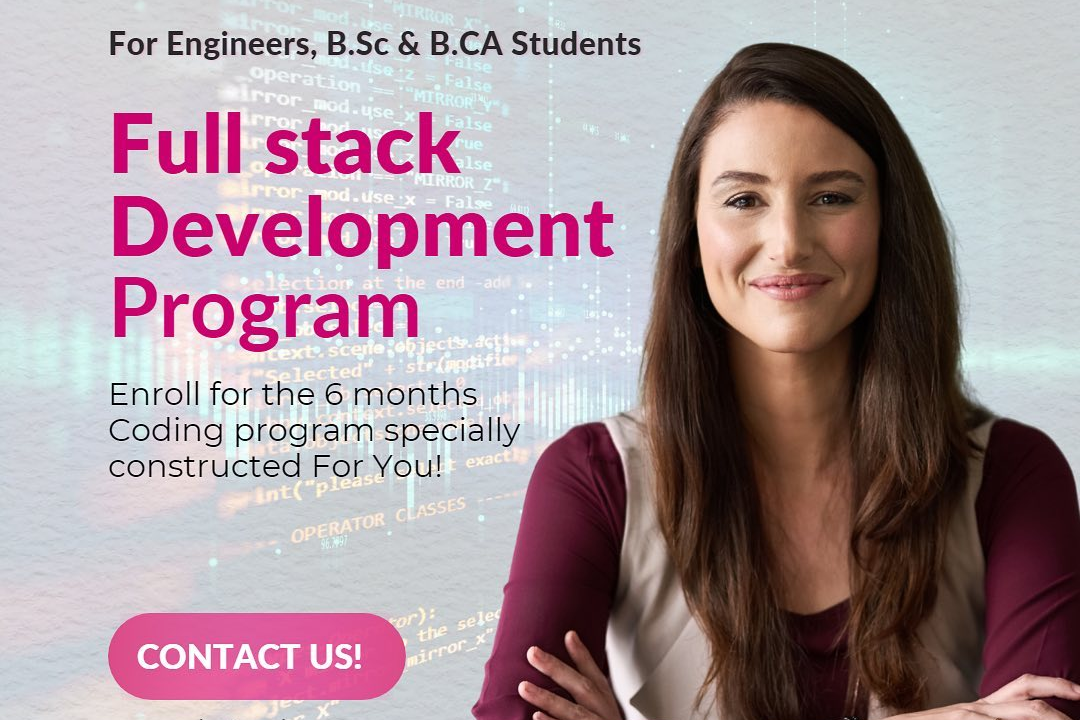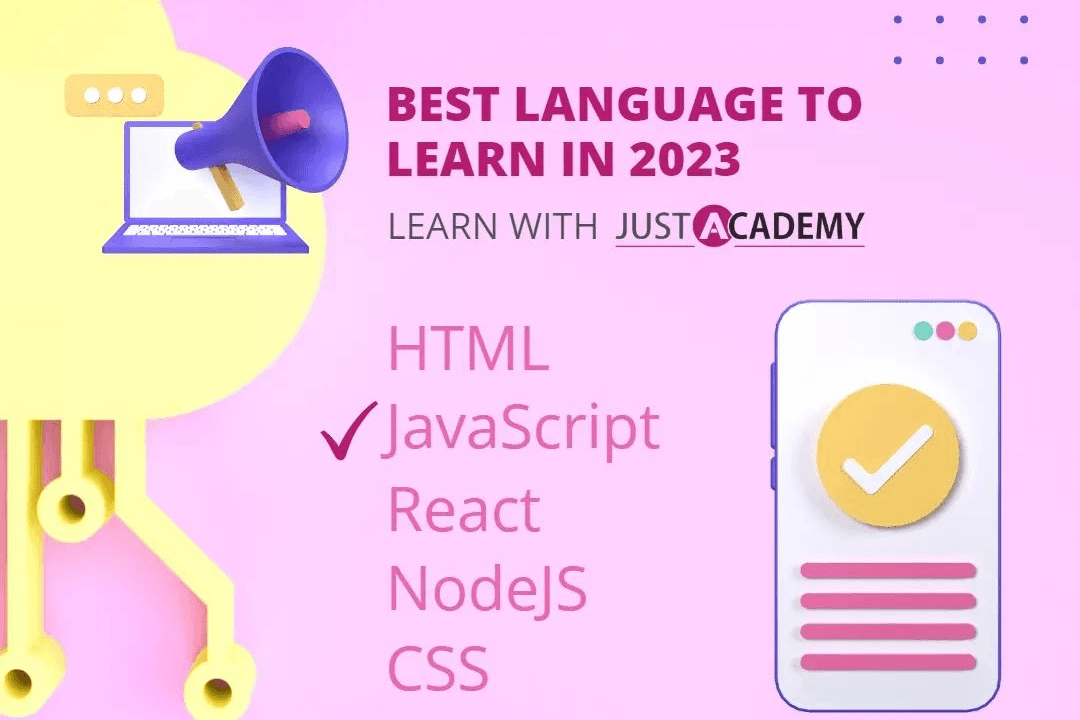Top Interview Qus Ans In Laravel
Essential Laravel Interview Questions and Expert Answers
Top Interview Qus Ans In Laravel
Laravel is one of the most popular PHP frameworks, and understanding its core concepts is essential for anyone preparing for a job in web development. The top interview questions often focus on Laravel's routing, middleware, RESTful APIs, Eloquent ORM, and security features. Familiarity with these topics not only demonstrates a candidate's technical proficiency but also their ability to build scalable and maintainable applications. Moreover, grasping Laravel's unique features, such as Blade templates and Artisan commands, can showcase a developer's deep understanding of the framework, making them a valuable asset to any team. As the demand for web applications continues to grow, mastering Laravel can significantly enhance one’s employability in the tech industry.
To Download Our Brochure: https://www.justacademy.co/download-brochure-for-free
Message us for more information: +91 9987184296
Here are the top interview questions and answers in Laravel:
1 - What is Laravel?
Laravel is a PHP framework designed for web application development that follows the MVC (Model View Controller) architecture. It provides an expressive syntax and is known for its robust features like routing, sessions, caching, and authentication.
2) What are the key features of Laravel?
Key features of Laravel include Eloquent ORM for database operations, Blade templating engine for views, built in authentication and authorization, RESTful routing, and powerful routing capabilities that promote clean URL handling.
3) Explain Laravel routing.
Routing in Laravel is used to define how an application responds to specific requests made to various URLs. Routes are defined in the routes/web.php file and can be easily created using the Route facade.
4) What is Eloquent ORM?
Eloquent ORM is Laravel's built in Active Record implementation which allows developers to interact with the database. It abstracts database interactions by allowing the use of PHP syntax rather than SQL queries, making database operations simpler and more intuitive.
5) What is middleware in Laravel?
Middleware in Laravel provides a convenient mechanism for filtering HTTP requests entering your application. It can be used for various purposes, including authentication, logging, or modifying request and response objects.
6) How does Laravel handle database migrations?
Laravel's migration system allows developers to create and modify database tables programmatically. Migrations can be rolled back or reapplied, providing a version control system for database schemas.
7) What is the purpose of Laravel's Blade templating engine?
Blade is Laravel's lightweight templating engine that allows developers to write clean and easily maintainable views. It supports template inheritance, sections, and allows developers to use PHP code directly within the templates.
8) What is dependency injection in Laravel?
Dependency injection is a design pattern Laravel uses to manage class dependencies. It allows for more flexible and testable code by injecting the necessary dependencies into classes rather than hard coding them within.
9) Explain RESTful routing in Laravel.
RESTful routing in Laravel utilizes resource controllers to create routes that respond to standard HTTP methods. It simplifies the creation of RESTful APIs, allowing developers to define resource routes with minimal code.
10) How do you implement authentication in Laravel?
Laravel offers built in authentication features that can be scaffolded using the artisan command ‘php artisan make:auth’. It provides login, registration, and password reset functionalities out of the box.
11 - What is a service provider in Laravel?
Service providers are the central place in Laravel for binding components into the service container. They're responsible for bootstrapping application services, loading configuration files, and registering event listeners.
12) How can you protect your Laravel application from CSRF attacks?
Laravel includes CSRF protection for forms out of the box. It generates a CSRF token that must be included in forms, which is checked on submission to ensure the request is valid.
13) What is a Laravel Job?
A Job in Laravel represents a class that is queued to run a specific task such as sending emails or processing uploaded files. Jobs can be dispatched and handled asynchronously for better performance.
14) How do you handle validation in Laravel?
In Laravel, validation can be handled using the built in validation rules provided by the Validator facade. You can validate request data directly in the controller or create custom request classes.
15) What are the benefits of using Laravel over other PHP frameworks?
Laravel offers a modern toolkit that streamlines development and promotes building applications with clean and maintainable code. Its features, community support, and outstanding documentation make it a popular choice compared to other PHP frameworks.
These questions and answers provide a solid foundation for understanding Laravel and preparing for related job interviews.
Here are additional interview questions and answers pertaining to Laravel, expanding on the depth and breadth of the framework:
16) What is Artisan in Laravel?
Artisan is Laravel's command line interface that provides a number of helpful commands for common tasks such as database migrations, seeding, and testing. Developers can also create custom Artisan commands to automate repetitive tasks.
17) Explain the purpose of Laravel's `.env` file.
The `.env` file in a Laravel application is used to store environment specific variables. It allows developers to configure various settings such as database connections, API keys, and other sensitive information without hardcoding them in the application.
18) What is the purpose of the Config facade in Laravel?
The Config facade in Laravel provides access to configuration settings stored in the `config` directory. Developers can use it to retrieve configuration values dynamically throughout the application.
19) What is the role of migrations in database schema management?
Migrations play a crucial role in database schema management by allowing developers to version control their database structure. They enable easy collaboration by letting multiple developers update the database schema in a consistent manner.
20) How does Laravel support localization?
Laravel supports localization through a straightforward localization mechanism that allows you to store language specific files in the `resources/lang` directory. You can retrieve the appropriate language strings based on user preferences or application settings.
21 - What is session management in Laravel?
Session management in Laravel is handled seamlessly, allowing developers to store data across multiple requests easily. Laravel supports several session drivers (file, database, cookie, etc.), making it versatile for various types of applications.
22) How do you create a custom validation rule in Laravel?
To create a custom validation rule in Laravel, developers can use the `php artisan make:rule` command to generate a new rule class. Then, implement the `passes` and `message` methods to define the validation logic and error message.
23) What are events and listeners in Laravel?
Events in Laravel are a way to decouple various parts of the application by broadcasting certain actions (like user registration) and listening for those events through listeners that execute specific code in response.
24) Can you explain the concept of service containers in Laravel?
The service container is a powerful tool for managing class dependencies in Laravel. It provides a way to bind and resolve classes and their dependencies, simplifying the instantiation of classes throughout the application.
25) What is the role of jobs and queues in Laravel?
Jobs and queues in Laravel enable background processing of time consuming tasks without delaying the response to users. By pushing jobs to a queue, developers can enhance application performance and improve user experiences.
26) How do you manage file uploads in Laravel?
Laravel simplifies file uploads by providing a file validation mechanism. Developers can use the request object to handle files, store them using the Storage facade, and manage file paths for easy retrieval.
27) What is the purpose of the Resource controller in Laravel?
Resource controllers in Laravel simplify the process of building RESTful APIs by automatically handling common CRUD operations (Create, Read, Update, Delete) through predefined controller methods.
28) How can you handle CORS in Laravel?
Laravel includes support for Cross Origin Resource Sharing (CORS) through the `barryvdh/laravel cors` package, allowing developers to define which domains are permitted to access resources on the server.
29) What is Laravel Passport?
Laravel Passport is a full OAuth2 server implementation for Laravel, providing a complete OAuth2 server implementation for user authentication. It is particularly useful for applications that require API authentication.
30) Explain how Laravel supports dependency management.
Laravel uses Composer for dependency management, allowing developers to express their application’s dependencies in a `composer.json` file. This makes it easy to pull in third party packages and manage versioning.
31 - What are Policies in Laravel?
Policies are a way to organize authorization logic in Laravel, allowing developers to define authorization rules for specific actions on models. They are particularly useful for authorizing user actions in a structured manner.
32) How can you implement soft deletes in Laravel?
Soft deletes in Laravel can be implemented by using the `SoftDeletes` trait in a model. This allows records to be marked as deleted without actually removing them from the database, enabling easy restoration later.
33) What features does Laravel provide for testing?
Laravel comes with built in support for PHPUnit, allowing developers to write unit tests and feature tests for their applications. It provides convenient methods, such as separate ways to test routes, database interactions, and API responses.
34) How can you implement multi authentication in Laravel?
Multi authentication in Laravel can be achieved by defining separate guards in the `config/auth.php` file. This allows multiple types of users (like admins and regular users) to authenticate using different login systems.
35) What is Laravel Mix?
Laravel Mix simplifies the process of managing asset compilation (CSS and JavaScript) using Webpack. It provides an expressive API for defining assets that need to be handled, such as compiling SASS, minifying files, and more.
These additional points offer a comprehensive understanding of Laravel, equipping candidates with the knowledge needed for interviews and practical application development.
Course Overview
The “Top Interview Questions & Answers in Laravel” course is designed to equip learners with essential knowledge and insights necessary for excelling in Laravel-related job interviews. This course covers a comprehensive range of frequently asked questions, from foundational concepts to advanced topics such as Artisan commands, middleware, authentication, and service containers. Participants will explore real-world scenarios and practical solutions, ensuring they gain a solid understanding of Laravel's core features and best practices. By the end of the course, learners will feel confident and well-prepared to tackle any Laravel interview successfully.
Course Description
The “Top Interview Questions & Answers in Laravel” course is meticulously crafted to prepare aspiring developers for successful job interviews in the Laravel framework. This course delves into a wide range of commonly asked questions, focusing on key topics such as routing, controllers, models, database migrations, and authentication. Through real-time project examples and practical insights, learners will not only understand theoretical concepts but also apply them effectively. By the end of the course, participants will be equipped with the knowledge and confidence to navigate Laravel interviews with ease, showcasing their skills and expertise in this powerful PHP framework.
Key Features
1 - Comprehensive Tool Coverage: Provides hands-on training with a range of industry-standard testing tools, including Selenium, JIRA, LoadRunner, and TestRail.
2) Practical Exercises: Features real-world exercises and case studies to apply tools in various testing scenarios.
3) Interactive Learning: Includes interactive sessions with industry experts for personalized feedback and guidance.
4) Detailed Tutorials: Offers extensive tutorials and documentation on tool functionalities and best practices.
5) Advanced Techniques: Covers both fundamental and advanced techniques for using testing tools effectively.
6) Data Visualization: Integrates tools for visualizing test metrics and results, enhancing data interpretation and decision-making.
7) Tool Integration: Teaches how to integrate testing tools into the software development lifecycle for streamlined workflows.
8) Project-Based Learning: Focuses on project-based learning to build practical skills and create a portfolio of completed tasks.
9) Career Support: Provides resources and support for applying learned skills to real-world job scenarios, including resume building and interview preparation.
10) Up-to-Date Content: Ensures that course materials reflect the latest industry standards and tool updates.
Benefits of taking our course
Functional Tools
1 - Laravel Framework
The core of the course revolves around the Laravel framework, a popular PHP framework that simplifies web application development. Students will learn how to implement various features of Laravel, such as routing, sessions, and authentication. Practical use of this framework ensures that learners can create robust web applications efficiently. Each module will involve hands on exercises that expose students to real world scenarios, enhancing their ability to respond to interview questions related to Laravel.
2) MySQL Database
An understanding of databases is crucial in web development, making MySQL a vital tool in this course. Students will learn how to interact with MySQL databases, writing queries to store, retrieve, and manipulate data. Practical sessions will guide participants through setting up databases, creating tables, and writing complex queries. Mastery of MySQL will allow students to handle data effectively, a common topic in many technical interviews.
3) Version Control with Git
Version control is an essential skill in collaborative development environments, and this course incorporates Git to teach students how to manage code changes effectively. Participants will learn Git commands, branch management, and how to work with repositories on platforms like GitHub. Real world project applications will ensure that students can present their codebases in interviews and demonstrate their understanding of collaborative workflows.
4) Postman for API Testing
As web applications increasingly rely on APIs, understanding how to test them is crucial. Postman is an industry standard tool that students will use to create and execute API requests. Through practical exercises, they will learn to test their Laravel API endpoints, validate responses, and handle various response types. This knowledge not only builds technical skills but also prepares students for questions related to API handling in interviews.
5) Visual Studio Code
A versatile code editor, Visual Studio Code will be the primary development environment used during the course. Students will be introduced to its features, including extensions, debugging tools, and integrated terminal capabilities. Learning how to effectively use VS Code will streamline the coding process, enabling students to focus on writing clean and efficient code. Familiarity with this tool will also make learners more proficient in a widely adopted coding environment throughout their careers.
6) Trello for Project Management
To simulate real world project management scenarios, Trello will be used to organize and track project progress. Students will learn how to set up boards, create task lists, and manage timelines collaboratively. This exposure to project management tools will not only enhance their technical project delivery but will also equip them with skills desirable in any tech team setting. Understanding how to manage tasks effectively is a crucial aspect of project based work, preparing students for future roles in development teams.
The training program emphasizes hands on learning with these tools to ensure students are well prepared for interviews and future job responsibilities. By integrating these platforms into the curriculum, JustAcademy ensures that participants not only learn theoretical concepts but also acquire practical skills applicable in real world scenarios.
7) RESTful API Development
A critical aspect of modern web applications is the ability to communicate with other systems through APIs. This course will cover the principles of RESTful API development, guiding students in designing and implementing APIs using Laravel. By engaging in hands on projects, students will learn how to create endpoints, handle CRUD operations (Create, Read, Update, Delete), and manage API authentication. Understanding RESTful principles will prepare learners to articulate and demonstrate their API knowledge during technical interviews.
8) Front End Integration with Blade Templates
Students will delve into front end development by utilizing Laravel’s Blade templating engine. They will learn how to create dynamic web pages that integrate smoothly with back end logic. The course will include practical exercises on how to pass data from controllers to views, implement layout inheritance, and use Blade directives. This knowledge will enhance students' ability to build cohesive web applications and provide insights during discussions about full stack development in interviews.
9) Unit Testing and Test Driven Development (TDD)
Testing is an essential part of the software development lifecycle. This course will introduce students to unit testing with PHPUnit and the concepts of Test Driven Development (TDD). Hands on sessions will guide them through writing tests before implementation, ensuring their code meets requirements and functions as intended. Gaining skills in testing methodologies prepares students for technical assessments where knowledge of quality assurance practices is often evaluated.
10) Deployment and Hosting
Understanding how to deploy applications is crucial for any developer. This course will teach students about the deployment process, including how to use platforms such as Heroku or DigitalOcean for hosting their Laravel applications. Practical sessions will cover configuring environments, handling migrations, and managing databases in live applications. Familiarity with deployment processes empowers students to confidently discuss their project setups in interviews.
11 - Security Best Practices
Security is paramount in web application development, and this course will cover essential security practices relevant to Laravel development. Students will learn about protecting applications from common vulnerabilities, such as SQL injection, Cross Site Scripting (XSS), and Cross Site Request Forgery (CSRF). Through practical exercises, they will understand how to implement security measures effectively. Knowledge of security protocols is highly regarded in interviews, providing students with an edge in discussions around secure coding practices.
12) Responsive Design Principles
As part of the course, students will explore responsive design to ensure their applications are user friendly across devices. They will learn how to use CSS frameworks like Bootstrap to style their applications effectively. Hands on projects will allow students to create layouts that adapt to various screen sizes, enhancing their understanding of front end development. Discussing responsive design in interviews showcases an awareness of user experience and accessibility in web development.
13) Real time Web Applications
The course will introduce students to creating real time applications using Laravel Echo and WebSockets, enabling instant data sharing and updates without page refreshes. Practical projects will cover use cases such as chat applications and live notifications. Mastering real time development equips students with advanced skills in demand for modern web applications, making them more competitive during job interviews.
14) Building a Portfolio
A significant aspect of the course will be dedicated to guiding students in creating a professional portfolio showcasing their projects. They will learn best practices for presenting their work, documenting their projects, and discussing their development processes. A strong portfolio can significantly enhance job prospects and serves as a critical tool during the interview process, allowing students to demonstrate their practical experience and skills to potential employers.
15) Soft Skills and Interview Preparation
In addition to technical skills, the course will focus on soft skills essential for career advancement, including communication, teamwork, and problem solving. Dedicated sessions on interview preparation will help students articulate their experiences, discuss projects, and answer common technical and behavioral questions. This comprehensive approach ensures that participants are not only job ready in terms of technical abilities but also confident in their interview performance.
These additional points further solidify the course's comprehensive nature, equipping students with a robust set of tools and skills that are essential for thriving in today's job market. By blending technical expertise with soft skills and real world experience, JustAcademy prepares learners for successful careers in web development.
Browse our course links : https://www.justacademy.co/all-courses
To Join our FREE DEMO Session:
This information is sourced from JustAcademy
Contact Info:
Roshan Chaturvedi
Message us on Whatsapp: +91 9987184296
Email id: info@justacademy.co











